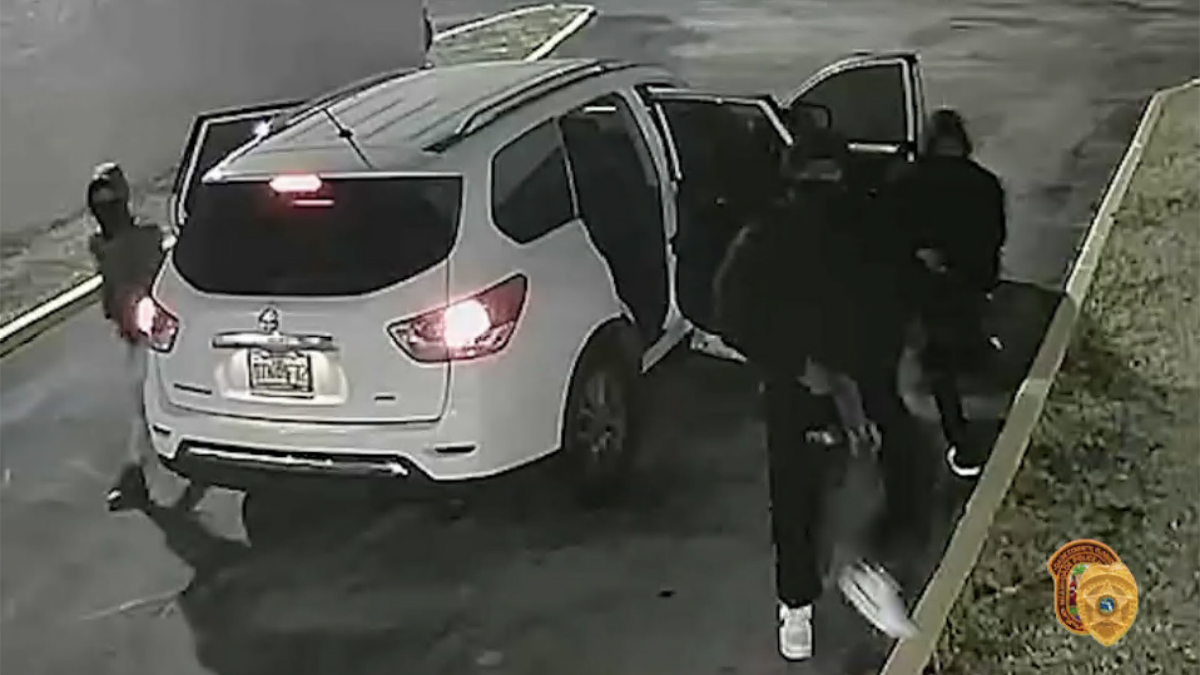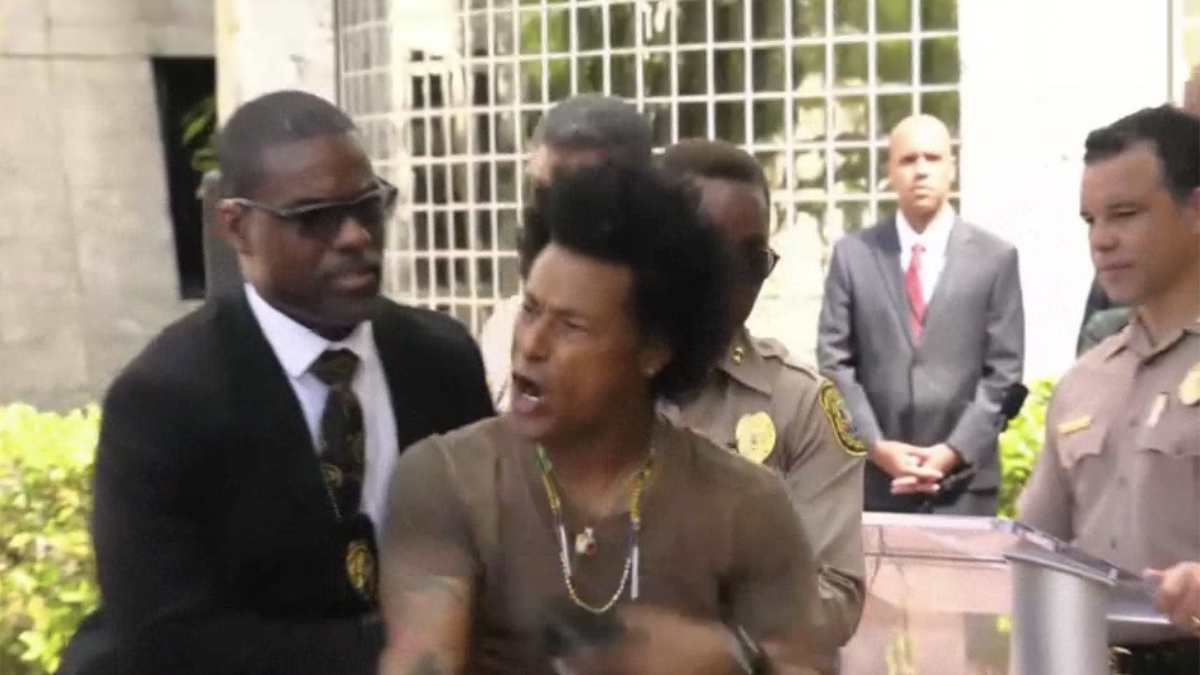Miami-Dade prosecutors are not giving up seeking justice for victims of a mass shooting outside El Mula banquet hall in 2021 that killed three and wounded 21.
The NBC 6 Investigators were in court this month as they leaned hard on the one man charged in the murders to help them prosecute others.
Police obtained two confessions from what they claim were at least four people involved, but the only man being prosecuted right now in the shooting was the accused lookout -- not a shooter.
That’s because, as NBC 6 reported last year, Miami-Dade homicide detectives did not heed one of the suspected shooters’ requests for an attorney before they persisted in questioning him, and getting a confession that prosecutors determined would not hold up in court.
Get South Florida local news, weather forecasts and entertainment stories to your inbox. Sign up for NBC South Florida newsletters.
That leaves 23-year-old Davonte Barnes as the only suspect facing charges; three counts of first-degree murder and 21 of attempted murder.
El Mula Banquet Hall Shooting
Police say he cased the crowd and alerted the three shooters when some of their targets – including a local rap artist -- were among those outside the club, which was hosting a premiere party for another rap artist’s new album.
At about 12:30 a.m. on May 30, 2021, video shows a stolen Nissan Pathfinder pull up around the corner from the club, and three gunmen emerge, spraying the sidewalk with gunfire. 99 shell casings fired from nine different firearms – including those of potential victims returning fire – were recovered from the scene.
Barnes was arrested first, in September, followed two weeks later by Anthony Warneric Buckner, who police say confessed to being one of the gunmen and named the others involved.
But prosecutors found Buckner’s confession came after he repeatedly asked for a lawyer, and therefore would not have been allowed in court, so his charges were dismissed.
In mid-March, it was Barnes asking a judge to throw out his confession, claiming police illegally made promises to him that induced him to say what he did.
His lawyer, Robert Barrar, raised the improper interrogation of Buckner with lead Miami-Dade Police Det. Alexandra Turnes. “Why did you continue to question Mr. Buckner after he said he wanted a lawyer present?” Barrar asked.
“It’s not that we continued to question him,” she said. “We just continued the conversation.”
As for prosecutor Michael Von Zamft dropping charges against Buckner, Barrar asked, “You were upset about that?”
“I was disappointed, yes,” Turnes testified.
Judge Robert Watson would decide whether Barnes’ confession should be tossed, as well, and he was well aware of the stakes.
“If I suppress the confession, right, in this case, this case probably goes away as well,” he said during the suppression hearing.
Watson allowed the defense to question Turnes about how she and Det. Richard Raphael questioned Buckner because the defense could argue there was a bias against Barnes and her credibility could be questioned.
“So that could be a reason this witness would skew her testimony, alter her testimony in a way to influence the court’s ruling and not suppress the evidence so at least there is one person who is convicted potentially in this case,” Watson said, outlining the defense’s theory.
But, in the end, Watson found no evidence Turnes or other officers did that or anything else improper with Barnes.
“On both prongs: whether there was probable cause for the arrest, there was; and, on the second prong, whether the statements were a product of promises, there’s been no evidence to support that,” Watson ruled from the bench. “So, for both reasons, I deny the motion to suppress.”
After court adjourned, with Barnes aware the judge ruled the state could use his confession against him at trial, Von Zamft received Barrar’s permission to approach Barnes at the defense table.
The prosecutor leaned into Barnes over the table and was heard explaining Barnes did not have a bad criminal record before this – something the state could use to support seeking a lighter sentence if he were to plead guilty and cooperate.
He would have to testify at trial against those implicated in his and Buckner’s alleged confessions, something the defense gave no indication Barnes had been willing to do.
Barrar said no plea bargain has been offered by the state and his client intends to go to trial, now set to begin in August.



